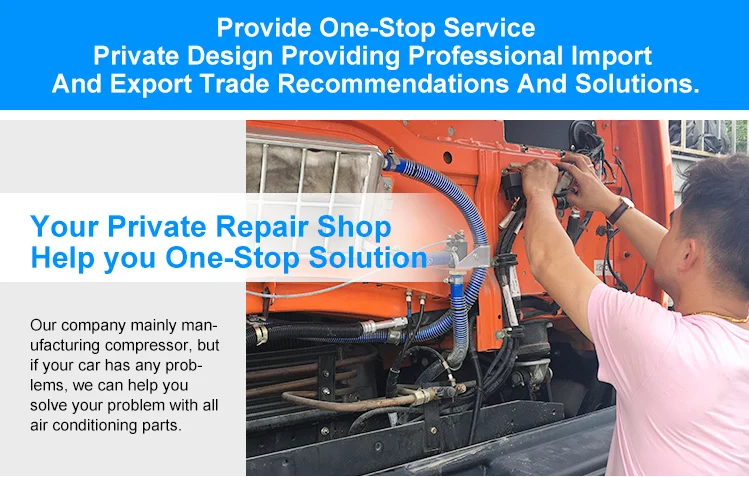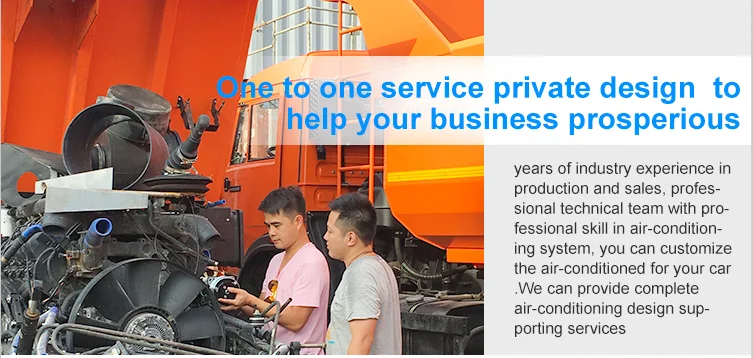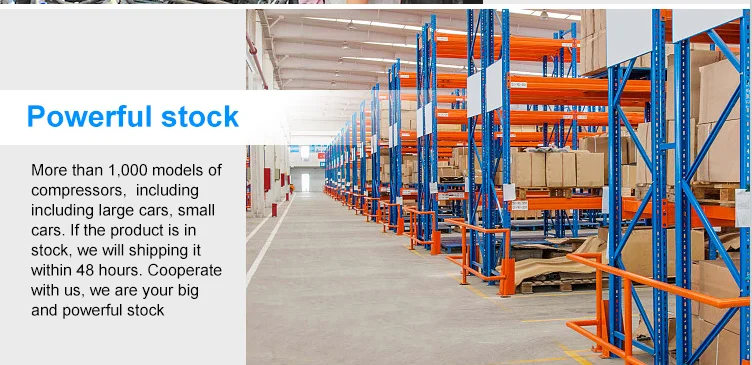


Technical Information
What you need to know
If you’re replacing an A/C Compressor, you have to be prepared to replace additional components in the system depending on the reason why your own
compressor failed. The information provided below was made to help you save TIME and MONEY.
1.) Compressor locked/seized internally:
If your compressor seized internally it was due to insufficient refrigerant or oil in the system or the system was
blocked, leading to overheating of the compressor which caused a breakdown of internal parts.
Visible symptoms:
The oil in the compressor is black and/or has aluminum particles in it. The belt snapped or when the a/c is
turned on, the engine feels like it’s going to turn off.
What you should do:
1. Replace the A/C Compressor (make sure to add PAG Oil)
2. Replace the Receiver Drier/Accumulator
3. Replace the Expansion Valve/Orifice tube
4. Flushing the a/c lines, condenser and evaporator is REQUIRED (We professionally recommend to replace
the condenser on modern vehicles since the passage on the fins are so small that a flush will not remove all
contaminants).
5. Vacuum the system for 30 – 45 minutes. This will remove any moisture in the system.
6. Add the correct amount of refrigerant to the system.
7. Run vehicle on lowest fan setting for about 3 minutes to allow the compressor to cycle the refrigerant and oil.
The reason why it’s important to replace the additional parts listed is because if you add a
new compressor to acontaminated system, the compressor will cycle the contaminants and will eventually lock up again.
2.) Compressor is making noise:
There are two possible reasons why your compressor is making noise.
First being that the compressor is suffering from
internal damage due to a lack of refrigerant or oil in the system.This is an early sign that the compressor will seize,
please go back to the first example and follow the instructions.
The second reason is that the
bearing on the compressor is bad.
Visible symptoms:
The compressor makes noise when the a/c is on or off, the clutch has a red/brown discoloration caused by overheating.
What you should do:
With the right tools and some mechanical knowledge,
you can replace the bearing on the compressor without having to remove it from the vehicle.
We carry almost all bearing sizes for a/c compressor clutches.
Please contact us and we will provide you with the item number so you may purchase the clutch bearing.
3.) Compressor does not engage:
If the compressor does not engage even though the system is properly charged, the coil may no longer be
functional. This can be an electrical issue of the vehicle or the coil may have suffered from overheating of the
compressor.
Visible symptoms:
The epoxy in the coil has bubbles, cracks and looks “dried out”.
What you should do:
Replace the clutch assembly or the a/c compressor. Please contact us for availability.
4.) Compressor is leaking:
Compressors can leak due to various reasons. This can happen if the compressor overheats, obstruction in the system and overcharging the system.
Visible symptoms:
UV dye is found on the shaft or body of the compressor.
What you should do:
Replace the compressor and conduct a leak test in order to ensure that there are no other leaks in the system.
Note: These are the most common issues found when it comes to a faulty compressor.
We advise that you take your vehicle to an ASE certified mechanic that is able to properly
diagnose your a/c system and determine the problem.
There are other problems that may be present in your system
which may not be listed on here. If you
still have questions, do not hesitate to contact us, we are here to help.
Tips:
- CONTACT US. We are dedicated professionals that only deal and specialize in automotive
air conditioning. We can assist with any installation questions,
system capacity requirements and have all additional parts for
your a/c system.
- After checking or filling the oil, turn the clutch on the compressor 10 times to distribute the oil inside.
- Check how much oil the compressor contains even if it’s brand new.
You do not want to end up doing the
job twice simply because there was an insufficient amount of oil added to the compressor.
- Replace the schrader valves anytime you service your a/c system.
- Check relays and pressure switches.
- After flushing, make sure that there is no flush liquid in the system by using compressed air or nitrogen.
- Make sure the condition of the condenser is so that the
performance is sufficient to maintain proper
temperature in the system. A non-conforming condenser may cause overheating of the compressor



 On-site material inspection
On-site material inspection